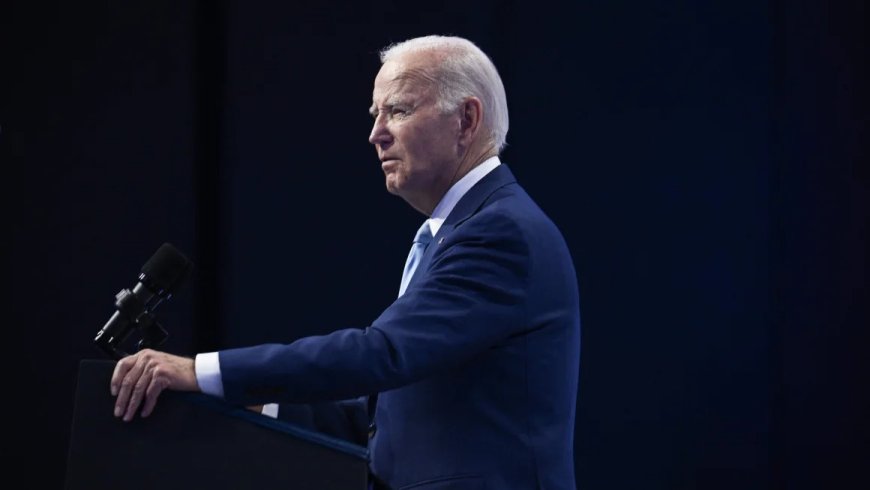Biden's Path to Reconnect: Strategies for Reversing Declines with Black and Brown Voters

What's Your Reaction?







Or register with email
Join our subscribers list to get the latest news, updates and special offers directly in your inbox

As President Biden navigates a challenging political landscape, analysts point to a crucial opportunity for him to reverse recent declines in support among Black and brown voters. Recognizing the significance of this demographic, several strategies emerge as potential avenues for reconnecting and rebuilding trust within these communities.
1. Addressing Economic Disparities: Economic issues disproportionately impact Black and brown communities. Implementing targeted policies that address income inequality, job opportunities, and small business support can resonate with voters who are seeking tangible improvements in their economic well-being.
2. Criminal Justice Reform: A commitment to comprehensive criminal justice reform remains a central concern for many Black and brown voters. Advocating for and implementing policies that address systemic issues, including police reform and prison reform, can signal a commitment to justice and equality.
3. Healthcare Access and Equity: Healthcare disparities have long been a focal point, particularly in marginalized communities. Expanding access to quality healthcare and addressing specific health challenges faced by Black and brown populations can demonstrate a commitment to their well-being.
4. Education and Student Debt Relief: Investing in education, from early childhood programs to higher education, is a key area of concern. Additionally, addressing the burden of student debt, which disproportionately affects minority communities, can be a tangible way to alleviate financial pressures.
5. Immigration Reforms: Black and brown voters are often deeply affected by immigration policies. Advocating for fair and just immigration reforms that recognize the contributions of diverse communities can resonate positively.
6. Effective Communication and Engagement: Building trust requires effective communication. Engaging directly with Black and brown communities, listening to their concerns, and incorporating their voices into policy decisions can foster a sense of inclusion and representation.
7. Grassroots Mobilization: Empowering grassroots organizations and community leaders can be a powerful strategy. Investing in initiatives that directly benefit local communities and collaborating with existing advocacy groups can amplify the impact of policy efforts.
8. Acknowledging Historical Context: Recognizing and addressing the historical context of systemic racism is crucial. Acknowledging past injustices, apologizing for wrongs, and actively working towards reparative measures can demonstrate a commitment to breaking with historical patterns.
9. Voting Rights Advocacy: Given recent challenges to voting rights, particularly impacting minority communities, a strong stance on protecting and expanding voting rights can resonate strongly with Black and brown voters.
10. Holistic Approach to Policy: A comprehensive and intersectional approach to policy-making is essential. Policies that recognize the interconnected nature of various issues affecting minority communities can garner broader support.
As President Biden seeks to strengthen his relationship with Black and brown voters, a multifaceted approach that addresses systemic issues, engages directly with communities, and prioritizes equity and justice is seen as pivotal. The success of these strategies may well shape the trajectory of support from these crucial voting blocs in the upcoming political landscape.







Total Vote: 1
Excellent
Total Vote: 1
Articles
